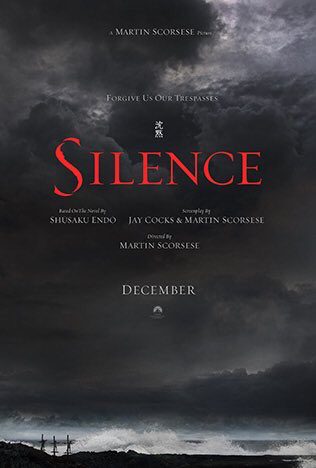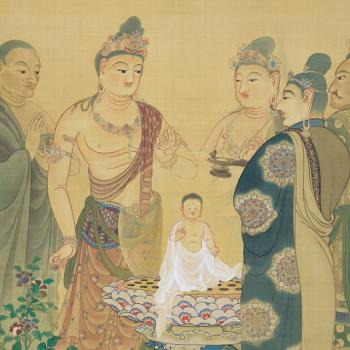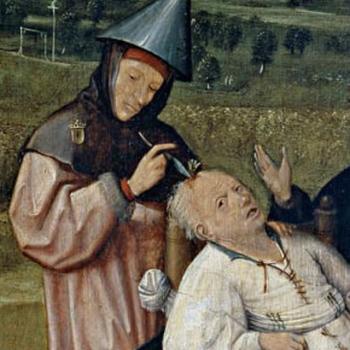Martin Scorsese’s latest offering, Silence, actually enjoyed a special initial release for the pope at Vatican City. It will officially open on the 23rd of December. Last night Jan and I went to Paramount Studios for a screening of Silence for journalists and bloggers. Frankly, I think people might find it an odd Christmas movie. As we walked out Jan said, “Now, that was harrowing.”
There are two brief quotes from reviewers that I believe taken together say what one is going to encounter going to see Silence. Peter Debruge at Variety informs us “Though undeniably gorgeous, it is punishingly long, frequently boring, and woefully unengaging at some of its most critical moments.” While Stephen Whitty at the New York Daily News tells us “It’s a demand for religious tolerance. A cry against injustice. A rebuke to European arrogance. And a striking psalm to the power of faith.”
For me, it is a stunningly beautiful film, slow, languid in its forward motion, brutally violent (it gets an R rating for violence), ultimately an examination of the deeper currents of religion, some of its dead ends as well as some of its possibilities for us in this sad and broken world. It caught me at the beginning and never let me go until the final credits, and even then…
In his review Mr Debrugge continues his reflection, which I found particularly compelling, “It is too subdued for Scorsese-philes, too violent for the most devout, and too abstruse for the great many moviegoers…” This definitely is not everyone’s movie. If you’re looking for a way to pass a winter evening with your sweetie, unless that person is burning with questions of life and meaning and spirituality, this probably isn’t going to win you any points. This is not an example of the light Christmas fare we usually get from Hollywood. However. If you want a film that addresses spiritual questions, real spiritual questions, this is no doubt a significant film, and, I think, a great one.
The core question, at least the presenting question the film examines is apostasy. What does it mean to abandon one’s faith? And then it digs deeper. And then, a bit deeper than that. Frankly, this was not what I think of as a Hollywood film, Christmas or otherwise. Well, at least I was thinking that, until it was pointed out that Martin Scorsese also made The Last Temptation of Christ, one of my favorite religious films of all time (the book is worth a read, too, in case you’re wondering…) And, if one puts it together with Scorsese’s wonderful biopic of the 14th Dalai Lama, Kundun, you have as Mr Debrugge suggests, Scorsese’s masterwork trilogy on faith.
This movie takes place in the 17th century following the Shimabara Rebellion and in the midst of the terrible retribution against Catholics, and with that the beginnings of the Kakure Kirishitan, the Hidden Christian movement. The story turns on two Jesuits, Rodrigues played by Andrew Garfield and Francisco played by Adam Driver who go to Japan to find their mentor Cristovao portrayed by Liam Neeson who has disappeared in the midst of a terrible persecution of Christians and about whom there is only a faint rumor which has reached Europe that he has apostasized. They arrive in a world totally alien to them, astonishingly beautiful, and with a violence equal to that the Christians had been handing out to each other and those they’ve colonized. That bad. The travels and travails of the two Jesuits and those they encounter is examined over one hundred and sixty one minutes.
The film is, as Jan said, harrowing. And, I found it riveting. The lushness of the film, the attention to faces and feet, and most of all, to hands was mesmerizing. I found those hands almost all dirty showing despair, and love, the complete mystery of our humanity in closeups of hands. My understanding is that Mr Scorsese was meticulous in portraying Japan in that era. The net effect is something completely otherworldly, and absolutely familiar. I found the specificity of the events and people captured universal questions that wrack our human condition.
While the presenting question is apostasy, why and how and whether we can abandon faith, the real questions quickly presented. What is God? Why is any petition or prayer of call to God met with silence? And then, something wonderful. For me as a Zen Buddhist something really challenging. What, actually, is silence?
At this writing Rotten Tomatoes has only accumulated twenty-one professional reviews. Astonishingly, at least to me, fully one hundred percent of them give it a thumb’s up. It is based on the novel of the same name by Shusaku Endo, the screenplay adapted by Jay Cocks, and, of course, directed by Martin Scorsese.
You want to see what might actually be one of the great spiritual movies?
This is your chance.













